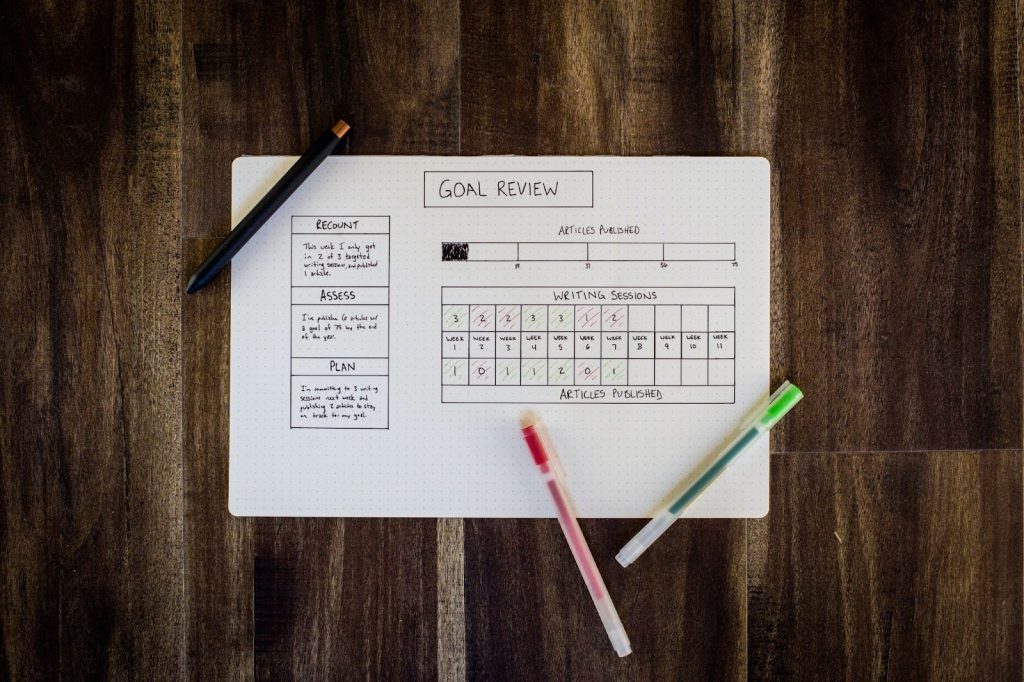- 70% of all internet sessions begin with a search engine, and ranking on page one is important.
- If you’re building a website from scratch there are some important SEO considerations to keep in mind – otherwise your site might not rank at all.
- Taking time to understand your audience and their needs is essential. This is done through keyword and competitor research.
- Your CMS is important for SEO, but so is building content and backlinks.
—————————————————————————————————————————————–
A presence on the internet is key for businesses looking to succeed in a post-pandemic economy. A Pew Research study from 2021 estimated that 90% of US adults said the internet was “essential” during the height of the pandemic. With so many people relying on the internet, businesses took note and invested in new websites. Unfortunately, this has made the competition for page-one rankings in search engines as tough as ever.
While competitive, it is a marketing channel that marketers cannot ignore; a study by BrightEdge estimates that close to 70% of all sessions on the internet begin with a search engine search. So how do you compete in such a competitive space? And what SEO considerations do you need to make when building a site from scratch? Don’t forget to check these SEO boxes, or your site might not rank at all.
Understand your audience
SEO is more than just keywords and backlinks; it is about understanding what your audience is looking for and providing them with that information in an optimal experience. To do this, you have to know your audience. Remember, your new website is for them; it is not for you. So understand the needs of your audience, the information they are looking for, and how you can fulfill that need.
Keyword research is an important step here. As SEOs and business owners, you need to avoid the trap of getting tunnel-visioned. Your terminology may be different from the terminology your audience uses. Understand what they are saying because that is what they are typing into search engines.
Tools like SEMrush will help you research this, but don’t underestimate the value of reading through industry forums. Quora and Reddit make excellent tools for understanding the questions your audience is looking to answer or problems they are looking to solve. Save a record of the questions you consistently see; these will be perfect for an FAQ page.
Define the purpose of the website and desired action for users
Now that you understand your audience and know what they need, ask yourself, what value can my website bring to them, and what action do you want them to take when they arrive? As an agency, it is surprising how many times we talk to new clients and ask them what their website’s primary goal is and how often that is the first time they think about it.
Having a clear goal will guide you through the design process and give you much-needed direction. The goal of the website is up to you. It could be generating sales for eCommerce sites or getting Demo Request signups for software companies. If you’re a content aggregator that gets paid by ads in your content, your goal may be to get multiple pageviews per session. Whatever that goal is, make it clear to everyone building the new website.
Choose the right platform (CMS)
Choosing the right platform to host your website is a very important step. As an SEO, you should be able to work on any platform and succeed; however, certain platforms provide you with the tools to make things more efficient. For example, platforms like WordPress have a good reputation for providing plugins with all the SEO tools you need. Yoast has been a go-to tool for SEOs for years. On the eCommerce side, platforms like Shopify have proven to be very SEO friendly. Custom-built websites are great if you have the infrastructure and team to maintain them.
Take page speed into consideration in this step. As search engines put additional page speed requirements to rank well in their algorithms, having a fast website out of the box is essential. Test a few templates using Google Page Speed Insight tools. A slow template will only slow down as you customize your site. Next, test some websites you know have been built on the platform you are considering. The largest piece of content on the page should load in under four seconds for mobile users and under one second for desktop users. Pay attention to server response times. If they are slow, it doesn’t matter how fast your website is; the platform will weigh you down.
Finally, look at the history of the platform you are looking to build your new website on. Has it kept up with modern web technologies? If it hasn’t, ask yourself if you should tie your investment to that platform.
With all those considerations in mind, the most important thing will be your and your team’s comfort level with the platform. Before deciding on one, ensure that your development team is comfortable. If you plan to outsource this, research the availability and pricing of developers for your chosen platform or build. It only matters how great a platform is if you have a team versed in it.
Plan website architecture
Now that you have researched your audience, understand their needs, and know what actions you want them to take on your website, it’s time to start thinking about the layout of your new website. Create a clear path for your users. For eCommerce sites, decide what your primary shopping categories will be and your subcategories. How will you display products to users: by type, by brand? What products and solutions do you want to show users for lead generation sites? Having a clear hierarchy is important for both users and search engines.
Don’t underestimate the power of content
In most cases, Google grants page one rankings to websites they trust to provide good information to users. In other words, they like to provide users with information from experts and authorities in their field. Through your keyword research, you’ll identify topics and questions users are looking for. From there, ensure your website has the pages to answer these questions properly.
A blog is a great way to provide informational content to your audience. However, if an ongoing blog is unsuitable for your business or audience, consider writing a few cornerstone pieces of content on your area of expertise. Also called pillar blogs, these pieces of content also make great resources to kick off a backlink campaign.
Off-page SEO is your friend
As much as search engines, like Google, have evolved over the years, backlinks continue to be an important way for websites to rank well in search. Ensuring your website provides good information to users will ensure that your website gets natural backlinks. However, as a new website, some good old-fashioned outreach is important. You won’t be doing outreach while you build your website, but it is important to identify who you’ll reach out to, as this can also help guide what content gets published on your new website.
Trust the experts
As you embark on this journey of building a new website, remember always to keep your audience in mind. Build a website for them and not for search engines, and you will be rewarded with good placement within search engines. If you’re struggling, need support, or just have questions, our team is always here to help. Connect with us today.





